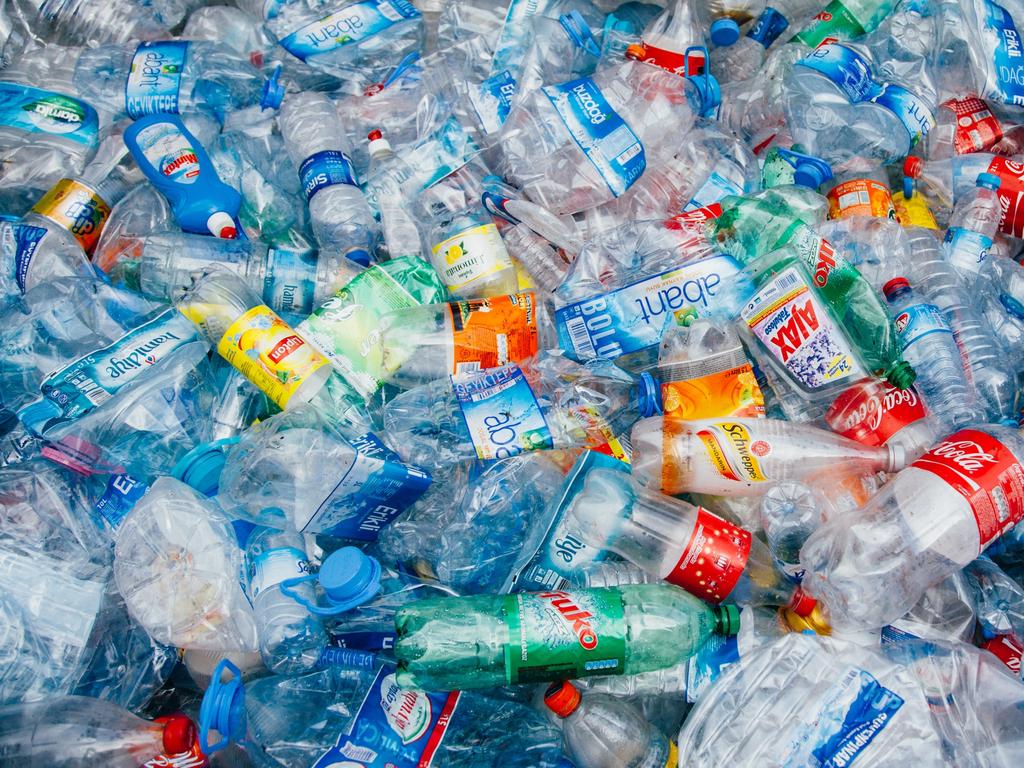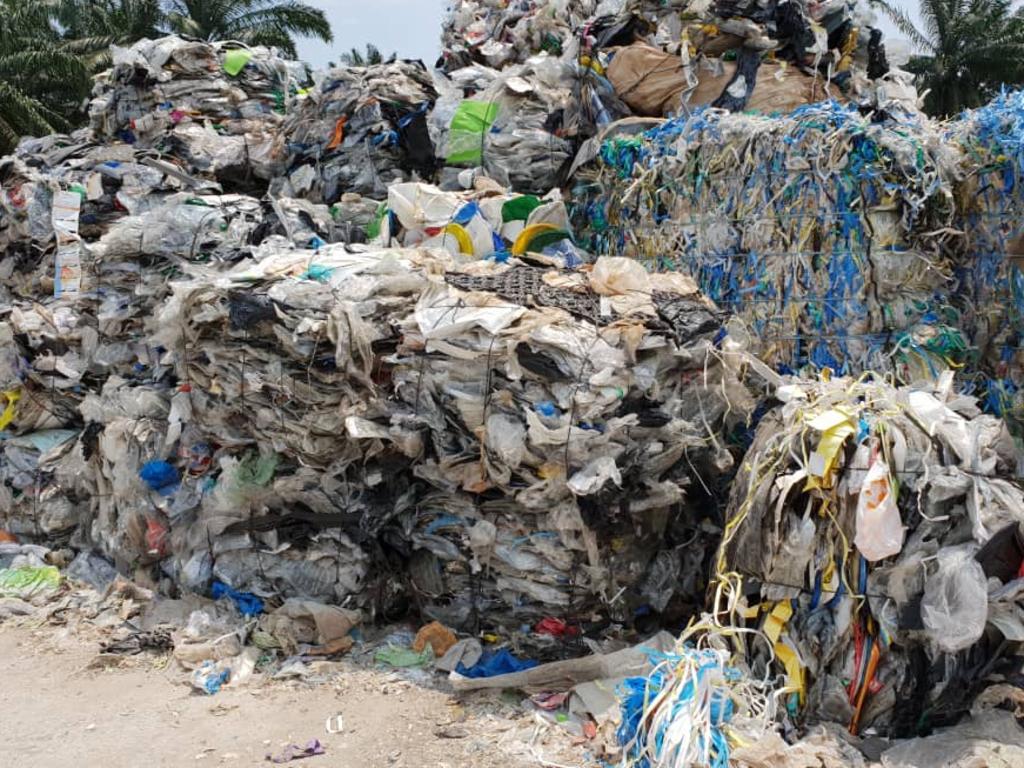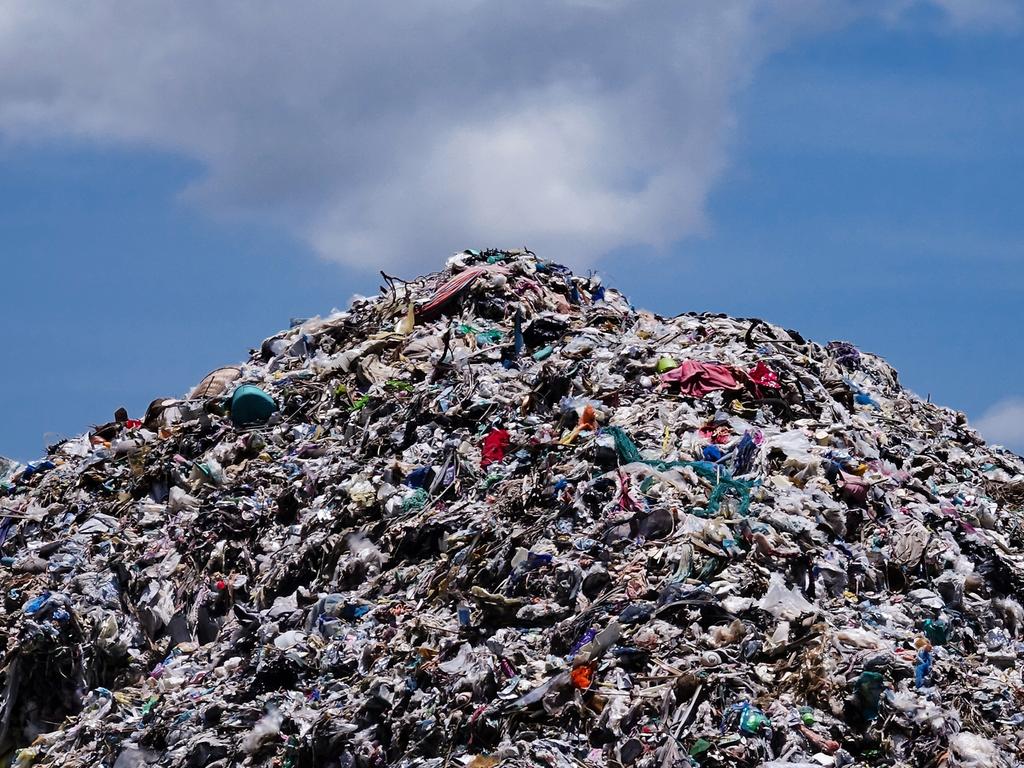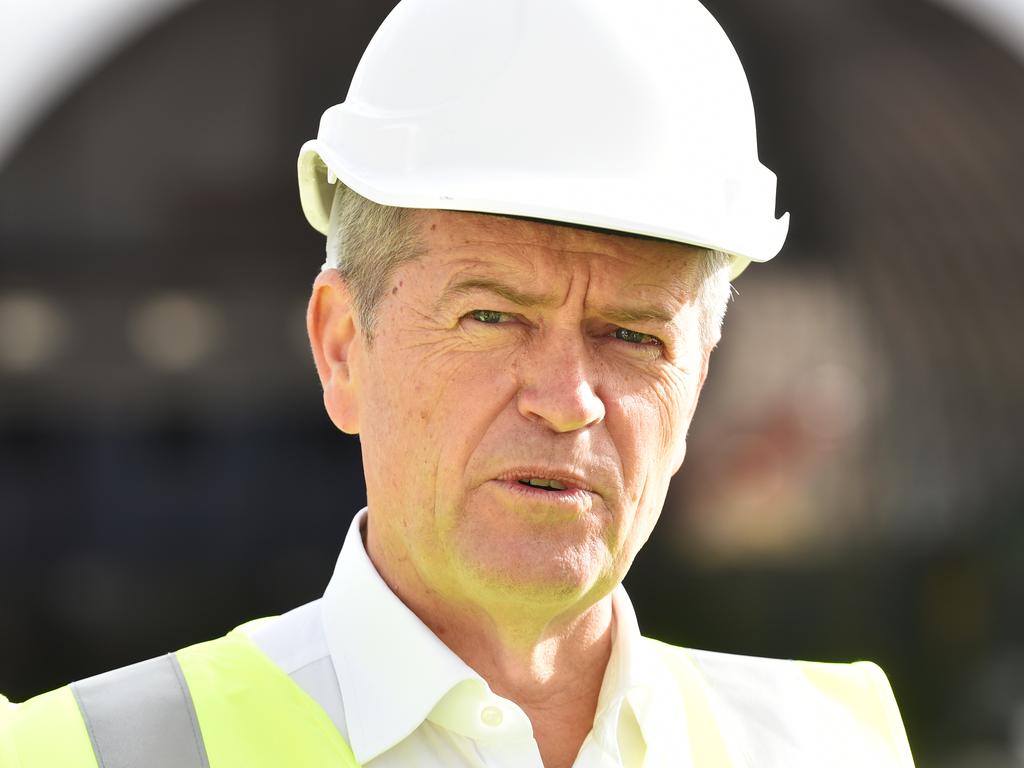‘We are in a crisis’: Australia’s recycling nightmare
As our plastic waste piles up at overstretched facilities or is dumped in Malaysia and Indonesia, the crisis is getting too big to ignore.
Australia has catapulted headfirst into a crisis that’s been building for a long time.
The nation is trapped under a mountain of its own waste, lacking the resources to even begin to deal with it — and plastic is our biggest demon.
While Aussie households have gradually become accustomed to sorting rubbish for recycling, the illusion of success was shattered when China abruptly stopped accepting our refuse in 2017.
The country had been processing 60-70 per cent of the world’s recycling, but when it realised the negative impact on its environment, it suddenly shut the door. India has cut us off, too.
Australia has only a few dozen processing plants compared with China’s thousands. So our plastic bottles, containers and coffee cups have been piling up at overstretched facilities, or shipped off to be illegally burned or buried in Southeast Asia.
“We don’t have enough built infrastructure to process our generated volumes of plastic,” Plastic Forests founder and owner David Hodge told news.com.au. “The Federal Government is a basket case. It needs to coordinate with all the states to action a national plan.
“Just imagine there’s no garbage trucks coming down the street any more to pick up rubbish. That’s the situation we’re in.
“We are in a crisis.”

After 20 years of relying on China, Australia is suddenly facing a visceral nightmare, as we start to drown in our own materialism.
While we have made some steps towards reducing single-use plastic, we still use around 3.3 billion plastic bags, 2.6 billion coffee cups, 2.4 billion plastic straws and 1.3 billion plastic bottles each year.
Soft plastics cannot be recycled, and when households dump plastic bags in the recycling bin, it acts “like chewing gum going through the machine”, which may have to be stopped and decontaminated.
Soft plastics cannot be recycled in the kerbside collections, and when households dump plastic bags in the recycling bin, it acts “like chewing gum going through the machines” at the Municipal Recycling Facilities, which may have to be stopped and decontaminated.

“When we put it in our recycling bin, where does it go?” asks Mr Hodge. “It’s taken almost a generation to train Australians to recycle.
“It needs this — almost emergency powers to step in and address it.”
NSW is the only state or territory without at least a commitment to ban single-use bags. Major retailers have already cut them out, with Coles and Woolworths driving an 80 per cent drop in the consumption of plastic bags nationwide by December last year.
Many want to see federal action, with Labor promising to ban single-use bags and microbeads by 2021 if it wins the election as part of a $290 million plan to cut waste and clean up the oceans. But the solution to our self-made hell will not be easy.
Australians are becoming aware of their impact, with the ABC’s War on Waste having a huge impact in 2017 after it exposed that we were ranked fifth in the world for generating the most municipal waste. A video of supermarkets dumping edible bananas helped it become the broadcaster’s most successful social media campaign.

Nine’s 60 Minutes this week tackled how recyclable rubbish is being dumped in Indonesia, Vietnam and, in particular, Malaysia, which received more than 71,000 tonnes of our plastic in the last year alone.
But the wake-up call has come late in the day, and answers are desperately needed.
Suggested solutions include replacing our plastics with biodegradable versions, taxing non-recyclable or “virgin” plastics, stockpiling the rubbish while we improve our recycling capabilities or burning plastic to create energy.
All of these ideas come with their own costs and challenges. Mr Hodge says he’s concerned the Government will rush headlong into burning plastic for electricity — a hugely expensive energy source — when it could focus on investing in the “circular economy” and creating jobs in the process.

We are living in what he calls a “DUD economy” — Dig it up, Use it, Dispose of it. Most things don’t work like that: more often, water, food and materials are part of a cycle.
“Everybody’s trying to do everything as cheaply as possible, it’s not long-term sustainability,” warns Mr Hodge. “It’s just an enormously expensive fuel.
“We want to keep plastic as plastic.”
Companies are now manufacturing garden furniture, bollards, park benches and cable insulation from recycled plastic. Plastic Forests has found a way to create a mini wheel stop from plastic film using a grant from NSW Environmental Protection Agency’s “Waste Less Recycle More” $802 million initiative.
Australia needs smart investment, clear thinking and innovative ideas to deal with the monumental challenge. This catastrophe may be the wake-up call we need.
A spokesperson for the Department of the Environment and Energy told news.com.au that in 2016-17, Australia generated 67 million tonnes of waste, with 55 per cent recycled, and around 2.5 million tonnes of plastics waste, with 12 per cent recycled.
“Australia’s generation of waste per person has been trending downwards, reducing by 10 per
cent since 2006-07,” said the spokesperson. “Australia’s recycling rate has been trending upwards, increasing by 26 per cent since 2006-07.
“In 2017-18 Australia exported 4.3 million tonnes of waste, or six per cent of national waste
generation.
“Over $1 billion has been spent on waste management activities since 2014, including actions, research and programs to support the delivery of the 2009 National Waste Policy. This does not include funding provided by state, territory and local governments.”
In December 2018, 80 per cent of exports went to Vietnam, Indonesia, China (including Hong Kong and Macau), India, Malaysia and Japan.
The 2018 National Waste Policy sets out 14 “circular economy” strategies to improve waste management outcomes in Australia, including avoiding waste, increasing industry capacity, and reducing the impacts of plastics and packaging. Environment Ministers have requested an action plan to implement it.
The policy states that for every 10,000 tonnes of waste that is recycled, 9.2 jobs are created, compared with 2.8 jobs if the same amount of waste was sent to landfill.




